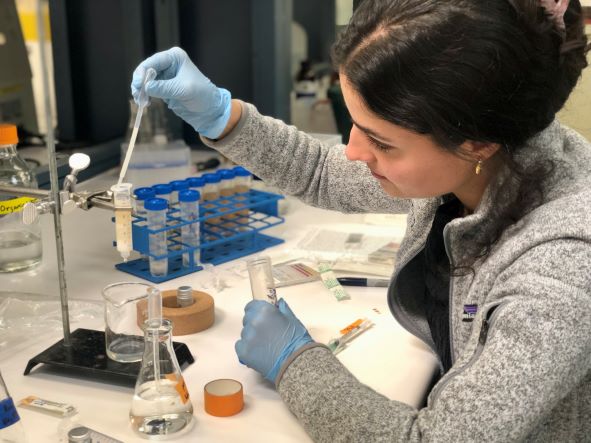
California-based startup Rubi Laboratories has unveiled a groundbreaking yarn composed of lyocell derived from captured carbon dioxide in manufacturing waste streams. This innovation could potentially revolutionize garment production by sequestering greenhouse gases instead of emitting them. Ganni, a Danish fashion brand, is at the forefront of this material revolution and showcased samples at the Global Fashion Summit in Copenhagen.
Nicolaj Reffstrup, the CEO of Ganni, expressed his enthusiasm for the possibilities this material presents. Ganni had invested in piloting the Rubi Labs technology earlier, making them the first fashion brand to trial fabrics produced with this groundbreaking process.
Reffstrup sees Rubi Labs as a perfect fit for Ganni's carbon insetting strategy, which focuses on reducing emissions within its own supply chain. He has even transferred his stake in Rubi Labs to his own venture fund, Look Up Ventures, emphasizing his commitment to climate crisis solutions.

Zero-Waste Pipeline from Emissions
Rubi Labs, a "symbiotic manufacturing" company, utilizes enzyme-powered biochemical processes to convert carbon dioxide into pure cellulose pulp. Reffstrup envisions implementing carbon sequestration equipment across Ganni's manufacturing nodes, from dye plants to yarn spinners, creating a zero-waste pipeline from emissions generation to feedstock production. However, he acknowledges that extensive testing is necessary to ensure the material aligns with Ganni's parameters of look, feel, durability, and applicability before large-scale adoption.
Collaboration with Rubi Labs is part of Ganni's larger sustainability strategy, which focuses on textiles as a key pillar. Over 70 percent of Ganni's collection already incorporates certified organic or recycled materials, and by 2025, they aim to source at least 10 percent from innovative fabric providers, such as Rubi Labs. Reffstrup emphasizes that improving fabric usage is crucial in reducing Ganni's carbon footprint, as 65 percent of their emissions originate from material production.
Agreements with Other Brands
While Ganni takes pride in being an early adopter of innovative materials, Reffstrup believes in sharing these solutions with others. Rubi Labs has offtake agreements with brands like H&M, Patagonia, and Reformation. Excluding others from accessing sustainable solutions would hinder progress, according to Reffstrup. However, Ganni does enjoy the advantage of being the first to trial Rubi Labs' lyocell, making it a frontrunner in the "arms race" of material innovation.
Ganni recognizes that meaningful change takes time, especially when reshaping an industry dominated by mass-produced commodities. Reffstrup draws parallels to Tesla's evolution and emphasizes the importance of generating volume to replace existing fibers with Rubi Labs' lyocell. Ganni's partnership with Rubi Labs aims to drive long-lasting change and move beyond token sustainability efforts.
Striving for Industry Change
Neeka Mashouf, CEO and co-founder of Rubi Labs, commends Ganni for its instrumental role in building partnerships between brands and manufacturing partners to reinvent manufacturing plants for a more sustainable future.
Ganni's commitment to responsible fashion extends beyond merely being sustainable. The company acknowledges the challenges within the industry and strives to continuously improve. Reffstrup acknowledges that fashion is here to stay and believes in the moral compromise of doing better each day and progressing toward the goal of being a fashion company that does no harm.
As other companies also explore the use of carbon dioxide as a raw material, the fashion industry has the opportunity to turn a problem into an opportunity. Ganni, alongside Rubi Labs and other innovative firms, aims to drive the industry toward a more sustainable and responsible future, where fashion and environmental preservation go hand in hand.
